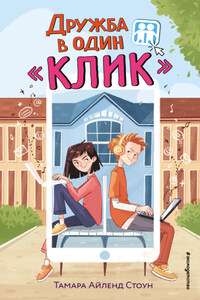All of a sudden he’s got a knife. The flash as he draws it is so unexpected fear paralyses me. I try to speak, but the sound dies in my throat. I can only stare at the blade glinting in the light streaming through the classroom windows.
Then waves of adrenaline pulse through my body and I can move again. I reverse towards the open door. Bilal steps forwards at the same time so that the knife remains pointed at me, at my chest, my throat.
My thoughts scramble and fall away. I once did a training course on how to handle these kinds of situations. An image of the textbook flashes through my mind. But I can’t remember the tips. I can’t remember.
Intuition kicks in: Don’t make eye contact. Try to escape. But will I make it to the door?
I glance at Bilal. His gaze is strange, fixed, predatory. His eyes register every movement I make, but surely he cannot see the wild heartbeat I can feel in my throat. I try to empty my face of expression, but I’ve no idea whether I’m succeeding. I probably look more surprised than frightened.
Surprised, because I hadn’t seen this coming. But I should have been prepared for it, particularly with Bilal Assrouti.
As he passes the first line of desks, the other students are still quiet, stunned. I stare at the knife and the world contracts into a tunnel through which I can see only the long blade and Bilal’s glittering eyes. The nineteen-year-old standing in front of me might be a schoolboy, but he’s also a man; he’s a head taller than me, his arms are muscular and there’s a tic in his neck.
My eyes become glassy with fear; time stretches. Probably no more than a few seconds have passed, but it feels like minutes, minutes in which I know I’m in serious danger.
Thick fog in my head. Reason, Lydia. Talk. I need to talk. Start up a calm conversation. Show him this isn’t the solution. Show him I’m taking his feelings seriously.
After letting out a dry cough, I find my voice. ‘Put the knife down, Bilal. You really don’t want this and it won’t get you anywhere. Why are you so angry?’
‘Why am I so angry?’ he shouts. ‘Why do you think, bitch? You just stood there, all full of yourself, and told me to leave school!’
‘That’s not what I said—’ I begin, but the denial is a mistake. His face contorts and I fly into the corridor. There’s a clamour in the classroom, but I don’t stop.
I run to the headmaster’s office and throw open his door. Jan van Osnabrugge has the phone in his hand, but one glance at my wild appearance is enough for him to put it down.
‘Lydia! What is it?’
I close the door behind me – Bilal hasn’t followed me – and lean against it. For a few seconds I can’t speak. ‘Bilal. He pulled a knife on me.’ I indicate the size of the knife with my hands and Jan’s eyes grow even wider.
‘You look pale. Are you all right? I’ll get you some water.’
He gets up, but I shake my head – I don’t want to stay here alone while he fetches water.
‘Sit down for a bit,’ Jan says. ‘Tell me what happened.’
Shaking, I sit down in the chair opposite him, but I can’t remember a single thing. I can’t recall anything of what happened beforehand or how the argument progressed, all I can see is the knife. I bury my face in my hands and weep hot tears.
Jan crouches next to me and puts his arms around me. ‘Have a good cry. Don’t worry. We’ll handle this. Where is Bilal now?’
I shrug, still shaking.
‘I’ll send someone to your classroom to look after the other students.’ Jan strides out of the room and I want to call out to him to stay, but no sound emerges from my throat.
I sit there in a daze, looking out of the window that opens onto the playground. Rotterdam College offers various types of education, but most students are doing some kind of technical or professional training. Generally they’re pleasant, reasonable young people. They do need keeping an eye on, but you can have a good relationship with them. Just like at any other school. And just like at any other school, we have students with learning difficulties such as ADHD, autism, Asperger’s or dyslexia. In the old days they would have gone to special schools, but not now.
I’ve always invested a lot in my students – I do a lot of overtime, making home visits or popping into the McDonald’s where they hang out, so we can have a chat. Mostly, my students appreciate this. Plenty of them have told me so; others have demonstrated it by sharing secrets, big and small, or telling me about their home lives. Believe me, this is not easy for them. In general, a child’s shame runs deeper than their need to talk about their problems.
In the beginning, if I turned up unannounced at their homes, they’d refuse to let me in, but little by little I’ve gained ground. I’ve been in most of their living rooms by now and, yes, I’ll admit that I’m proud of it. Why shouldn’t I be?









